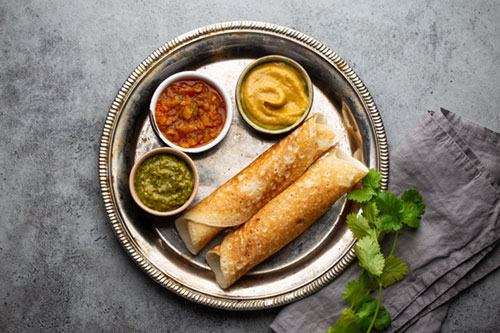Geriatric Nutrition
International Day of Older Persons – October 1, 2022
Geriatrics is the study of the chronic diseases frequently associated with aging, including diagnosis and treatment. In aging adults, nutrition care is not limited to disease management or medical nutrition therapy but has broadened to have a stronger focus on healthy lifestyles and disease prevention.

Nutrition Needs
Many older adults have special nutrient requirements because aging affects absorption, use and excretion of nutrients (Bernstein et al, 2012).
After Age 60 years
Energy requirements are estimated to be up to 25-35 kcal/kg IBW (IDEAL BODY WEIGHT), the minimum protein requirement is 1 g protein/kg of body weight with newer evidence supporting up to 1.2 g/kg.
In those individuals with impaired renal function or longstanding diabetes, 0.8 g/kg to 1.0 g/kg may be more appropriate.
Protein distribution evenly throughout the day with no single serving exceeding 30 g should be a goal.
-
NutrientsRecommendation
-
EnergyBasal metabolic rate decreases with age because of changes in body composition.
-
Protein0.8 g/kg minimum – 1.2 g/kg IBW
-
Carbohydrates45% – 65% total calories
Fiber – up to 30 – 35 g/day -
LipidsLipids 20% – 35% total calories
-
Vitamins and Minerals
Vitamin B122.4 mg -
Vitamin D600 – 800 IU
-
Folate400 µg
-
Calcium1200 mg
-
Potassium4700 mg
-
Sodium1500 mg
-
ZincMen 11 mg
Women 8 mg
Key Recommendations for Older Adults
- A balanced intake of calories can help maintain optimum weight. By reducing salt intake, sugar intake and by minimizing processed food and fats, a healthy style of food consumption can be established. Indulging in regular exercise also helps immensely.
- Concentrate on increasing intake of food and drinks rich in nutrients. Choose fat free or low-fat dairy options and protein rich foods like sea food, lean meat, eggs, etc.
- Choose vegetables, fruits, whole grains and milk and milk products for more potassium, dietary fiber, calcium and vitamin D as nutrients of concern. Eat a variety of vegetables, especially dark-green and red and orange vegetables, beans and peas. Consume at least half of all grains as whole grains.
- Nutrient needs should be met primarily through consuming foods. When needed, fortified foods and dietary supplements may be useful in providing one or more nutrients that otherwise might be consumed in less than recommended amounts. Consume foods fortified with vitamin B12, such as fortified cereals, or dietary supplements.
- Two eating patterns that are beneficial are vegetarian adaptations and the DASH (Dietary Approaches to Stop Hypertension) Eating Plan.
- Individuals should meet the following recommendations as part of a healthy eating pattern while staying within their calorie needs.
Mahan, L. K., Escott-Stump, S., & Krause, M. V. (2008). Krause’s food & nutrition therapy. 12th ed. Philadelphia, Pa.; Edinburgh, Elsevier Saunders, Pg. No.- 367-381.
SAMPLE MENU – Calories: 1800 kcal / 70g protein
-
TIMINGNAME OF THE FOODALLOWANCE
-
On Rising MorningCoffee/tea/milk with milk 100 ml. Sugar- Naattu Sugar – 1/2 TSPN.150 ml
-
Breakfast (8.30 Am)Idli (or) dosai (or) any cereal /millet preparation Chutney (or) sambhar, egg white 2 nos daily.3 nos / 2no /200 gms cooked wt 1/2 cup
-
Mid-Morning(10.30 To 11.00 Am)(SMOOTHIE FIGS (2 nos) and almonds & walnut (5 no each) black grapes (3 no) – AN ALTERNATIVEWEEKLY FOUR DAYS). (60ml) almond soak and deskinned @ MID MORNING
Cut fruits – 100 gms (Any Variety) /butter milk with chia seeds soaked 5 gms./veg soup – 200 ml/nuts laddu – 2 nos (ing – smoothie.)
200ML -
Lunch (1.00 -2.00 pm)Rice/ millet preparation/pulka.
Dhal preparation/sambhar/Non-Veg (Fish/Chicken)
Vegetable + ghee + salad
Curds (skimmed)
200 gms cooked wt/ 2 NOS
1 cup/100 gms
1cup
100 ml
-
Evening (4.00 to 4.30 pm)Same like early morning.
-
6.00 pmSundal /cut fruits / tomato juice (100 gms) / 200ml
-
Dinner (8.00 to 8.30 pm)Idli (or) dosai (or) any cereal /millet preparation Chutney (or) sambhar/ Legumes / Paneer Preparation3 nos /2no /200 gms cooked wt 1/2 cup.
-
Bed Time(Nutritional Supplement) – As Prescribed 2 Scoops + Water / Milk 150 ML2 nos /150 gms cooked wt 1cup

Ms. Yamini Gali, MSc., RD
Lead – Clinical Dietician
Kauvery Hospital Chennai

